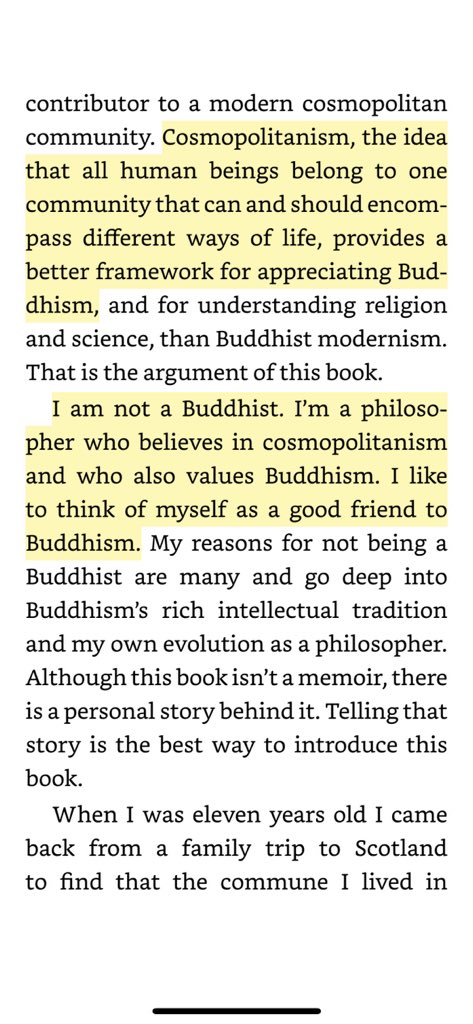I’ll advised use of Twitter functionality for a chapter by chapter review of @evantthompson’s #WhyIAmNotABuddhist. Will link the threads with that hashtag. This is the Introduction chapter. 

The Introductory Chapter is not a perfunctory one. It provides a nice overview of the overall thesis of the book and a lot of relevant details about Evan’s substantial personal & professional background with Buddhism / efforts to combine Buddhist practices & cognitive science.
It’s clear from the opening that this isn’t intended as a polemic but rather as an informed critique from a ‘friend’ who has a deep interest and personal connection to Buddhism and recognizes it as a complex religious tradition with valuable practices and systems of thought. 

What Evan is taking aim at is primarily ‘Buddhist Modernism’ and the associated tendency towards ‘Buddhist exceptionalism’ which is the prevalent tendency to treat Buddhism as unique and superior to other forms of religion, and indeed to deny it even is really a religion. 

You can see this view promulgated quite widely in modern liberal circles. Sam Harris is an obvious culprit (Buddhism as a 2500 year old mind science) and Evan also points his finger at Robert Wright but we will get deeper into those criticisms in later chapters.
Back in the introduction there is an interesting account of Evan’s unorthodox childhood growing up in an ‘alternative education community’ organized by his parents. Here, it’s refreshing to see an account that details how children react to the imposition of Zen formalities. 



Indeed, it may be this background & familiarity with Buddhism (removing some of its exoticism) that positioned Evan well in time to recognise the dogma that seeped in to seemingly worthy & open minded endeavors including the Mind & Life Institute where he worked. 



He identifies questions that should be familiar to anyone who has spent time critically examining the mindfulness literature. Imagine the difference in reception to a TED talk by a Catholic priest promoting introspective prayer for trauma vs. a Buddhist monk urging meditation.
In any case, one powerful segment describes his participation in a silent retreat. Here, he provides a rare critical commentary on how such experiences are not ‘context free explorations of reality’ but highly structured events with an attached doctrinal framework. 

There are even pints at which the account sounds reminiscent of classic guru/cult dynamics. But I think it would be wrong to stretch this comparison, except in too appreciate that cults/religions and indoctrination all exist on a spectrum and silent retreats are on that spectrum. 

Ok finished commute back later!
Also I’m going to be checking for typos from now before posting. God damn!
• • •
Missing some Tweet in this thread? You can try to
force a refresh












